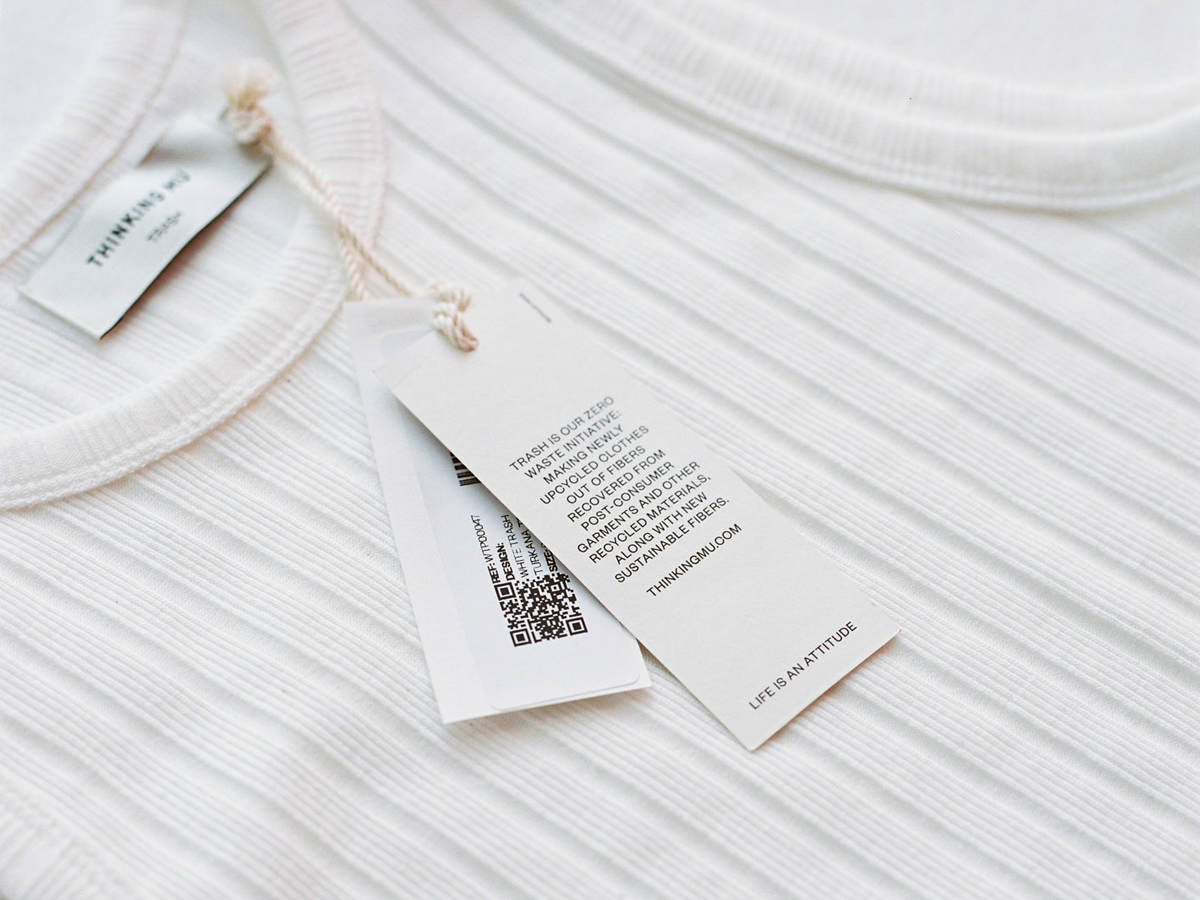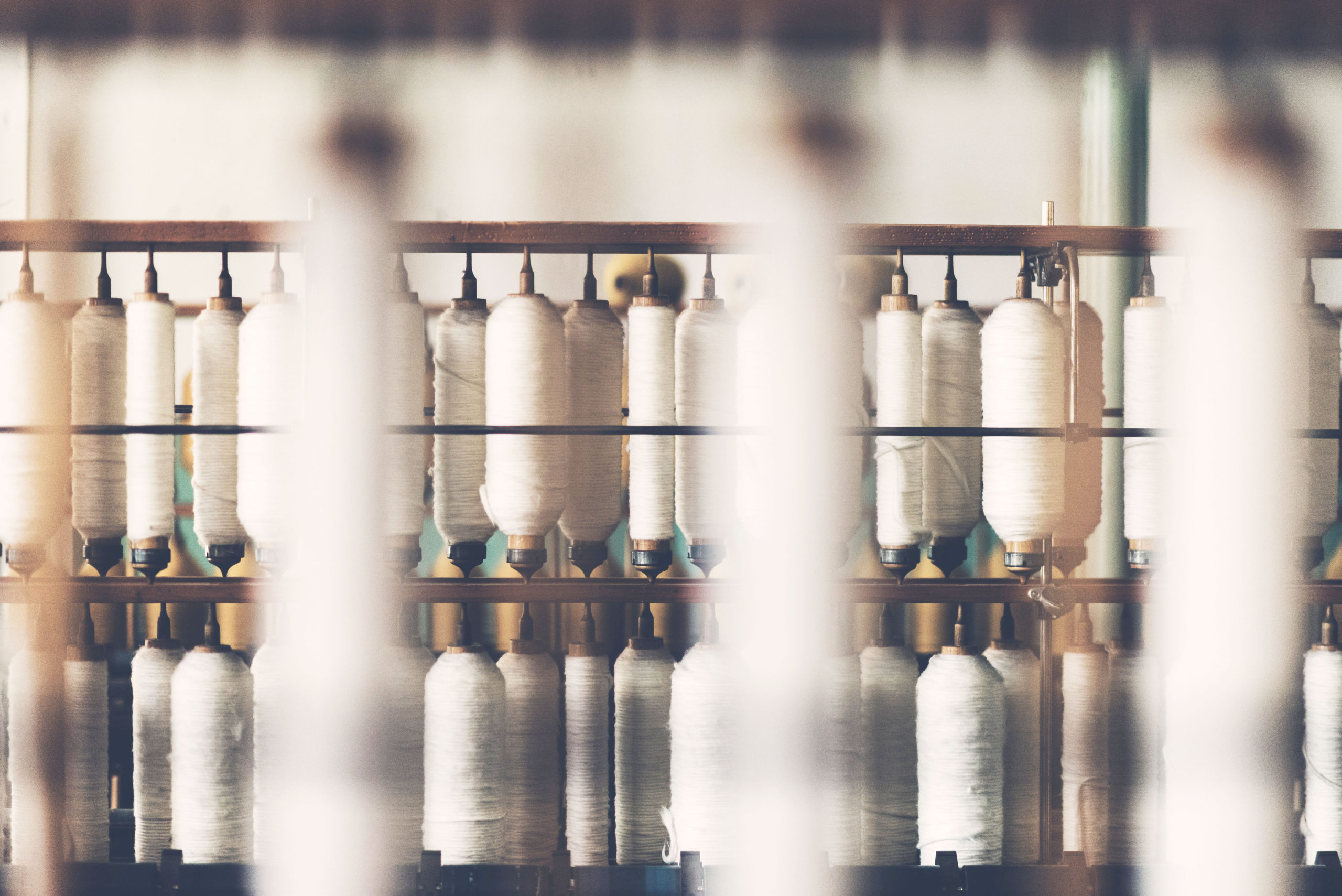Image credits: Thinking MU
The days of labels whose information is reduced to indicating the country of origin, the percentage of materials used and the washing instructions are numbered. Through digital passports, the fashion industry has found the formula to turn labels into a resource to extend the brand experience and share the sustainable efforts of brands. Discover the reasons why this new medium can help improve sustainability in the textile sector.
Product passports are another of the great innovations that The State of Fashion 2022 Report pointed out as game changers in the fashion industry for the coming months. In order to promote authenticity, transparency and sustainability, fashion brands are investing in technologies that allow products to be identified as well as add information of interest to them. These passports consist of a combination of blockchain technologies, which are compatible with radio frequency identifiers (RFID), QR codes or near field communication (NFC).
Fashion brands are investing in technologies that allow products to be identified as well as add information of interest to them
Thanks to these technologies, textile companies have the ability to address some of the most critical points in the industry, such as forgery or the need to implement more responsible business practices. Here are some of the reasons why digital product passports can increase sustainability in the fashion industry:
Provide transparency and traceability to products
These passports allow direct storage and sharing of information about a product’s sustainability credentials. The brands have the possibility of disclosing with total transparency details about the materials of the article, where and how it was manufactured or the working conditions of the manufacturer.
Until now the relationship between brands and customers ended at the point of sale, digital passports allow the experience to be extended much further. The information provided by these passports has the ability to be updated in real time as impact reports on a garment’s environmental footprint evolve. This data helps improve consumers’ understanding of a garment’s impact. As brands advance their own sustainability journey, they are engaging users in this evolution.
The information provided by these passports has the ability to be updated in real time as impact reports on a garment’s environmental footprint evolve
Although product passports are setting higher standards for fashion industry transparency and supply chain traceability, brands face the challenge of verifying that data obtained from suppliers is accurate. For this, it will be essential to have a trusted partner that works under standards that support the complete traceability of the supply chain to protect the authenticity of the data obtained.
The brands that trust BCOME to evaluate their products integrate the traceability of their items in their e-commerce and tag their garments with smart labels that collect all the information through a QR. In this way, our brave brands give the user the freedom to navigate through data to ease conscious decision-making.
Promote the circularity of products
By providing detailed material data, product passports also make it easier to collect and sort garments for large-scale recycling. Tech companies like closed-loop recycling platform Circular Fashion have developed software that enables a flow of information between material suppliers, fashion brands, consumers and those who run the recycling of clothing.
Thanks to the information included in product passports, recyclers can separate waste more efficiently. Currently, there is a significant drop in the quality of the materials when they are recycled, this is due to the fact that higher grade materials are recycled as if they were lower grade. Having better information is key to improving the quality of the recycled material obtained.
Within the Circular Economy Action Plan, the European Commission is in the analysis phase to implement product passports in sensitive industries whose value chains are complex, as is the case in the textile sector. Starting in 2023, Europe plans to gradually introduce this tool in order to increase the chances that products can be reused and recycled. The idea is to identify the most important information about the composition of each article so that all individuals involved in the life cycle of the product can reuse it or treat it correctly in waste management facilities.
Prevent the forgery of products
As we discussed in the article on the future of NFTs, one of the permanent struggles within the fashion industry is linked to defending copyright and intellectual property of products. Digital passports are a great tool against counterfeiting.
Currently, imitations generate a high percentage of revenue in the fashion industry. The China Certification and Inspection Group is among the organizations that use product passports to fight textile counterfeiting. Through “one item, one code” technology, they allow customers to verify the authenticity of the product by scanning a code. Some luxury brands like Chanel are already replacing physical authenticity cards with in-product digital passports made from scannable metal badges.
The existence of integrated digitized labels reduces the probability of information being separated from the product, thus allowing all owners of the same item, whether first-hand or second-hand, to have constant access to the information during the lifetime of the garment.
Throughout 2022, the adoption of digital passports is expected to spread both at the B2B and B2C level. The pressure coming from the initiatives proposed by the European Commission to promote circular economy, as well as the prevailing need to know in greater detail the complex supply chains of the fashion industry, will work as great drivers in the implementation of digital passports.
Without a doubt, one of the factors that will determine the success of the collective adoption of product passports will be the determination of common systems that standardize the information obtained. It’s important to create a structure that works for both smaller and larger brands. Therefore, the technology developed by BCOME follows the latest methodological recommendations of the European Commission, high standards that verify the accuracy of our results. Let’s tackle the transparency of your business together!








